Can you Take Aspirin With Paracetamol?

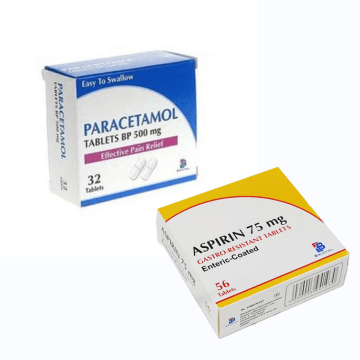
Related products
Taking Aspirin With Paracetamol
The question, "Can you take aspirin with paracetamol?" is not uncommon in medical circles and among patients seeking pain relief. Both aspirin and paracetamol are staple names in the world of over-the-counter pain relief medications. They have long histories of use, with aspirin derived from willow bark and having been used for millennia, and paracetamol being in use for over a century.
Dr. Samuel Henderson, a leading pharmacologist at King’s College London, commented, "Their ubiquity in medicine cabinets across Britain underscores their effectiveness. Yet, their mechanisms and uses are distinct."
Why is it important to understand the drug interactions between Aspirin and Paracetamol?
Understanding the drug interactions between aspirin and paracetamol is crucial to prevent potential adverse effects, ensure effective treatment, and safeguard overall patient health. Interactions between medications can be a complex topic, especially when considering drugs as commonly used as aspirin and paracetamol.
"Understanding how drugs interact is crucial not only for efficacy but also for safety," notes Dr. Jane Mitchell, a clinical pharmacist at the University of Edinburgh. "Taking multiple medications without proper knowledge can lead to reduced effectiveness or, worse, detrimental side effects."
What is Aspirin and what is it used for?
Aspirin, or acetylsalicylic acid, is a medication used for pain relief, reducing inflammation, and lowering fever. Additionally, in low doses, it's prescribed to prevent heart attacks and strokes due to its anti-clotting properties.
Aspirin operates primarily by inhibiting the cyclooxygenase (COX) enzyme. This effect is pivotal in its ability to reduce the production of prostaglandins and thromboxanes. "By reducing these compounds," says Dr. Henderson, "aspirin not only tackles pain and fever but also plays a role in preventing blood clotting."
Another significant aspect of aspirin's action is its impact on platelets, the tiny blood cells essential for clotting. Aspirin inhibits the aggregation of platelets, reducing the risk of clot-related diseases. Dr. Lisa Morgan, a cardiologist at Cambridge University Hospital, asserts, "It's this anti-platelet effect that's utilised in cardiovascular disease prevention."
Common uses of Aspirin include the following:
Pain relief
One of the main reasons people reach for aspirin is its effectiveness against pain. From headaches to menstrual cramps, aspirin has been a go-to remedy for many. A 2019 survey from the British Pain Society showed that 67% of Britons had used aspirin for pain relief at least once in the past year.
Fever reduction
Beyond pain, aspirin's antipyretic properties make it effective in fever reduction. As Dr. Mitchell notes, "Its ability to lower body temperature during feverish conditions has been a boon for many, especially during flu seasons."
Cardiovascular disease prevention
Due to its anti-platelet properties, aspirin is also recommended for those at risk of heart attacks or strokes. Dr. Morgan comments, "For certain individuals, a low daily dose can drastically reduce the risk of major cardiovascular events."
What are the side effects and precautions of Aspirin?
Side effects of aspirin include gastrointestinal bleeding, stomach upset, and increased bruising. Precautions include avoiding it in individuals with certain allergies, stomach ulcers, or bleeding disorders, and in children with viral infections due to the risk of Reye's syndrome.
Gastric ulcers and bleeding
Despite its benefits, aspirin is not without its risks. One of the main concerns is its potential to cause gastric ulcers and bleeding. According to a study by the British Medical Journal in 2021, aspirin-related gastric complications were a leading reason for hospital admissions related to drug side effects.
Reye's syndrome in children
Another serious concern is Reye's syndrome, a rare but potentially fatal disease in children, often linked to aspirin usage during viral illnesses. As a result, aspirin is generally not recommended for children under 16.
Allergic reactions
A small percentage of the population may also experience allergic reactions to aspirin. Symptoms can range from hives and runny nose to severe asthma attacks.
What is Paracetamol and what is it used for?
Paracetamol, also known as acetaminophen, is an over-the-counter analgesic and antipyretic medication. It is primarily used for the relief of mild to moderate pain, such as headaches, toothaches, and muscle aches, as well as for reducing fever.
Paracetamol, while also effective against pain and fever, works differently than aspirin. It exerts its effects centrally, primarily in the brain, inhibiting the production of prostaglandins. Dr. Henderson points out, "It’s this central action that distinguishes paracetamol from aspirin and other non-steroidal anti-inflammatory drugs (NSAIDs)."
The common uses for Paracetamol are the following:
Pain relief
Paracetamol's analgesic properties are well-established. Whether it's a toothache, back pain, or post-operative discomfort, many find solace in this drug. The British Pain Society's survey referenced earlier also found that 78% of respondents had used paracetamol for pain relief in the past year, slightly more than those who used aspirin.
Fever reduction
Just as with aspirin, paracetamol is frequently used for its antipyretic effects. Dr. Mitchell adds, "It's often the first line of defence against fevers for both children and adults, primarily due to its safety profile."
What are the Side effects and precautions of Paracetamol?
Side effects of paracetamol include liver damage (especially with overdose or prolonged use), allergic reactions, and skin rashes. Precautions include avoiding excessive alcohol while taking it, staying within recommended dosages, and being cautious with other medications that may also contain paracetamol to prevent overdose.
Liver toxicity
The primary concern with paracetamol is the potential for liver toxicity, especially in cases of overdose. The British Liver Trust reported in 2022 that paracetamol-related liver complications are a significant cause for concern, with misuse leading to numerous hospital admissions yearly.
Overdose potential
Accidental overdoses, often due to the concurrent use of multiple products containing paracetamol, can be dangerous. Dr. Mitchell warns, "Always check product ingredients and never exceed the recommended dose."
Interaction with alcohol
Another point of caution is the interaction between paracetamol and alcohol. Regular, heavy drinkers may be at a heightened risk of liver damage if they consume paracetamol. Dr. Henderson advises, "It’s always best to err on the side of caution and avoid combining the two."

Can you Take Aspirin With Paracetamol?
Yes, aspirin and paracetamol can be taken together; however, it's important to be cautious. Combining them may increase the risk of certain side effects, and it's essential to ensure the combined dose doesn't exceed recommended limits. It's always advisable to consult with a healthcare professional before taking multiple medications concurrently.
What are the potential benefits?
The potential benefits of combining aspirin and paracetamol are enhanced pain and fever relief due to their complementary mechanisms of action.
Enhanced pain and fever relief
One of the most compelling reasons to consider the combination of aspirin and paracetamol is the potential for enhanced pain and fever relief. Both drugs, as extensively discussed, have potent analgesic and antipyretic properties. Dr. Rebecca Simmons, a pain management specialist at St. George's Hospital in London, notes, "When used together, some patients find they achieve better pain control than when using either drug alone." This synergistic effect is especially pronounced when the pain is multifactorial, with both inflammatory and non-inflammatory components.
Different mechanisms of action
The distinct ways in which aspirin and paracetamol act within the body lend credence to the idea of combined use. As Dr. Simmons states, "They address pain from different angles. Aspirin focuses more on inflammation and platelet action, while paracetamol zeroes in on the central nervous system." This divergence means that, in some cases, taking both could address a broader spectrum of pain pathways.
What are the potential risks?
The potential risks of combining aspirin and paracetamol include increased side effects, strain on the liver and kidneys, and a higher chance of overdose or toxicity.
Increased side effect potential
While there are benefits, co-administration of aspirin and paracetamol isn't without risks. One primary concern is the increased potential for side effects. Dr. Martin Wells, a clinical pharmacologist at Oxford University, comments, "As with any drugs, the more you take, the higher the risk of experiencing adverse reactions. Combining aspirin and paracetamol might amplify this risk, especially with long-term use."
Strain on liver and kidneys
Both aspirin and paracetamol are metabolised by the liver, and their by-products are excreted by the kidneys. Dr. Wells cautions, "The liver and kidneys are already hard at work processing these medications individually. Using them concurrently, especially in high doses, might place undue stress on these organs." Regular monitoring of liver and kidney function would be essential in such scenarios.
What are the recommendations from health organisations?
Health organisations typically recommend limited combined use of aspirin and paracetamol, emphasizing short duration, staying within safe dosages, and always consulting with a healthcare professional before combining the two.
Limited combined use
Given the potential risks, many health organisations, including the British Medical Association, recommend limited combined use of aspirin and paracetamol. Their guidelines suggest that if both are to be taken, it should be for a short duration and not as a regular regimen.
Advisories on dosages and frequency
Dosage is another area where health organisations have provided clarity. Dr. Angela Cooper, a consultant at the National Institute for Health and Care Excellence (NICE), mentions, "When combining aspirin and paracetamol, it's crucial to be vigilant about dosages. Overdose or even upper-end dosages, especially over prolonged periods, could prove detrimental."
When is the combination advised?
The combination of aspirin and paracetamol is occasionally advised for enhanced pain and fever relief, especially when pain has both inflammatory and non-inflammatory components. This combination might be beneficial in cases where one medication alone isn't providing sufficient relief. However, it is essential to emphasize that such a combination should typically be used:
Under medical supervision
There are situations where the combined usage of aspirin and paracetamol may be advised, but it should always be under strict medical supervision. "Certain complex pain scenarios might warrant this combination, but it's essential to have a medical professional overseeing the process," says Dr. Simmons.
Short-term usage
Another consensus among experts is the emphasis on short-term use. Chronic usage poses more significant risks, so if both drugs are deemed necessary, it should ideally be for a brief period.
People Also Ask
What are the Recommendations for Safe Use?
Always consult with a healthcare professional
No matter the circumstance, it's imperative always to consult with a healthcare professional before taking medications concurrently. They can provide personalised advice based on individual health profiles.
Be aware of total daily dosages
As previously highlighted, dosage vigilance is essential. It's easy to inadvertently consume high dosages, especially if using other products containing these drugs. Awareness and careful reading of labels can prevent this pitfall.
Monitor for side effects
Regularly monitoring for any adverse effects is crucial when taking multiple medications. Any unusual symptoms should be promptly reported to a doctor.
Avoid alcohol or other drugs that might interact
Further complicating the drug interaction profile by adding alcohol or other medications is ill-advised. Dr. Wells warns, "Alcohol, in particular, when mixed with paracetamol, can amplify the risk of liver damage."

Where can I buy Aspirin and Paracetamol?
Aspirin and paracetamol can be purchased at pharmacies, drugstores, and some supermarkets. They are also available for purchase online through various online pharmacies or retailers. Always ensure you buy from a reputable source and consult with a healthcare professional before taking any medication.
Products available at Welzo:
Aspirin Dispersible 75mg Tablets Pack of 100
Aspirin Dispersible 300mg Tablets Pack of 32
Disprin Direct Tablets Pack of 16
Paracetamol Tablets 500mg Pack of 32
Calpol Infant Suspension, Paracetamol Medication, For 2+ Months, Strawberry Flavour
Calpol Sugar Free Infant Suspension, Paracetamol Medication, 2+ Months, Strawberry Flavour

Conclusion
The balance between the potential benefits and risks of taking aspirin and paracetamol concurrently is a delicate one. While there can be enhanced pain and fever relief, the potential side effects and strain on organs are factors that can't be ignored.
If there's one message to underscore, it's the importance of informed decisions. "Medications are tools," Dr. Cooper from NICE states, "and like any tool, they need to be used correctly to be effective and safe. Consulting with healthcare professionals ensures you're using these tools wisely."
So, the next time you ponder, "Can you take aspirin with paracetamol?", remember that knowledge, caution, and professional guidance are your best allies.



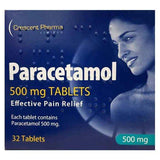








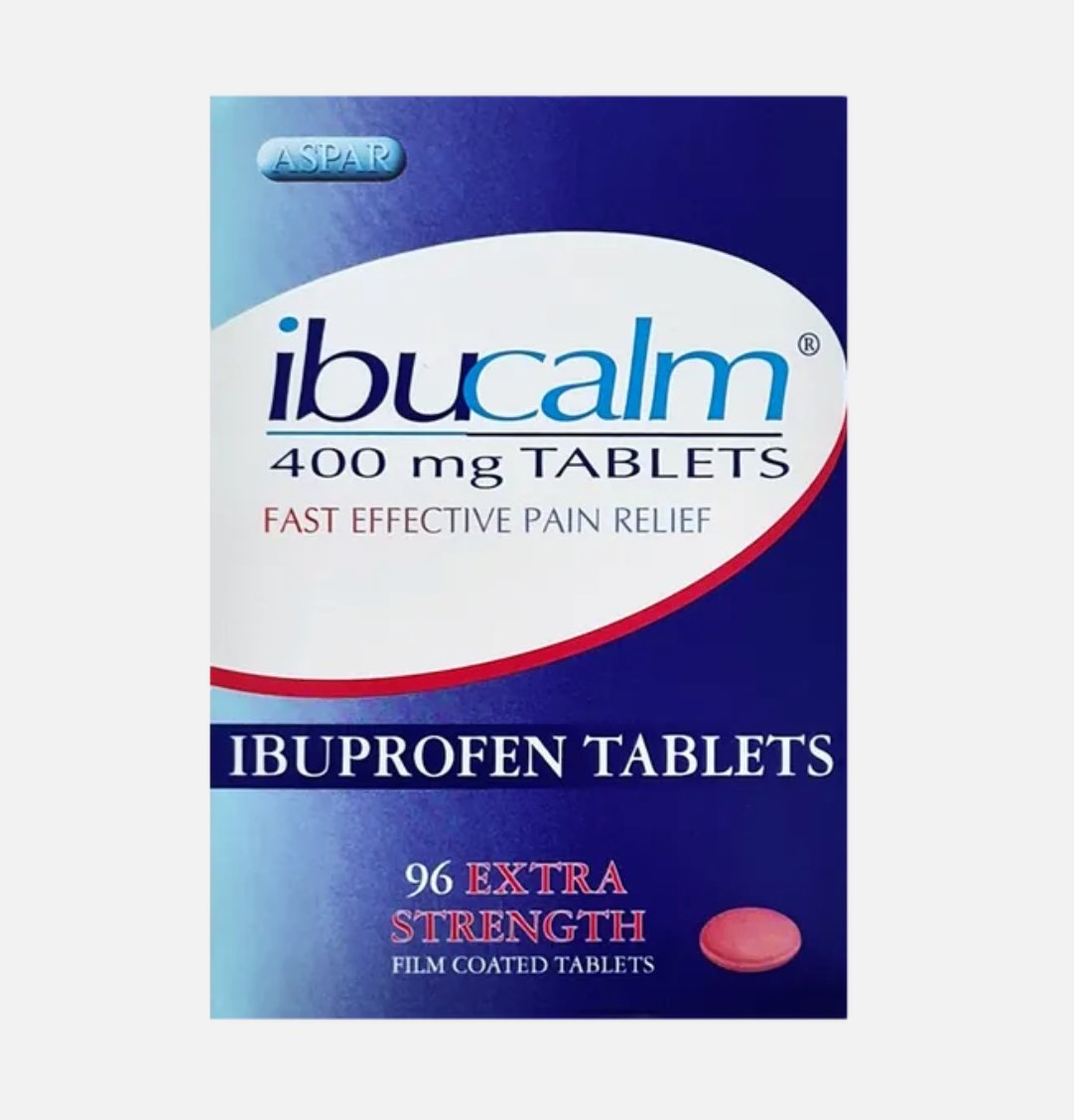
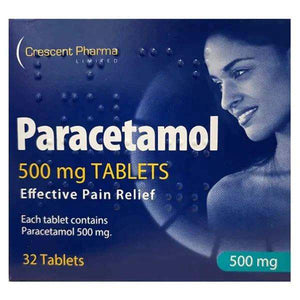



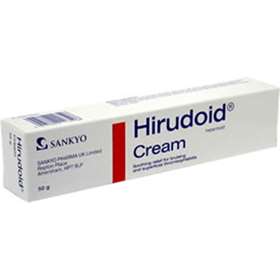

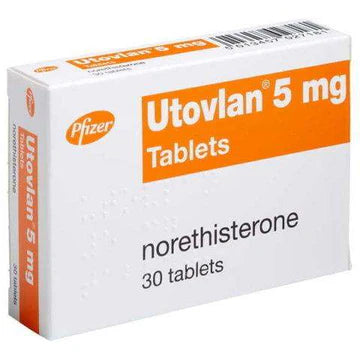



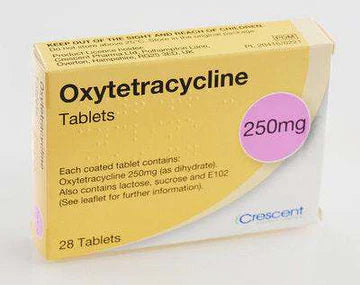
 Rated Excellent by 26,523+ Reviews
Rated Excellent by 26,523+ Reviews